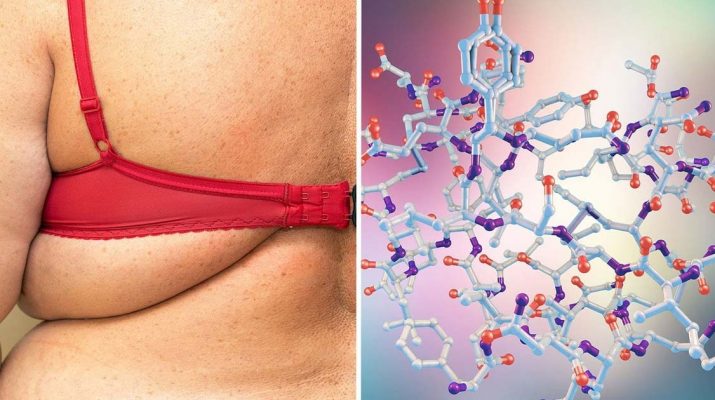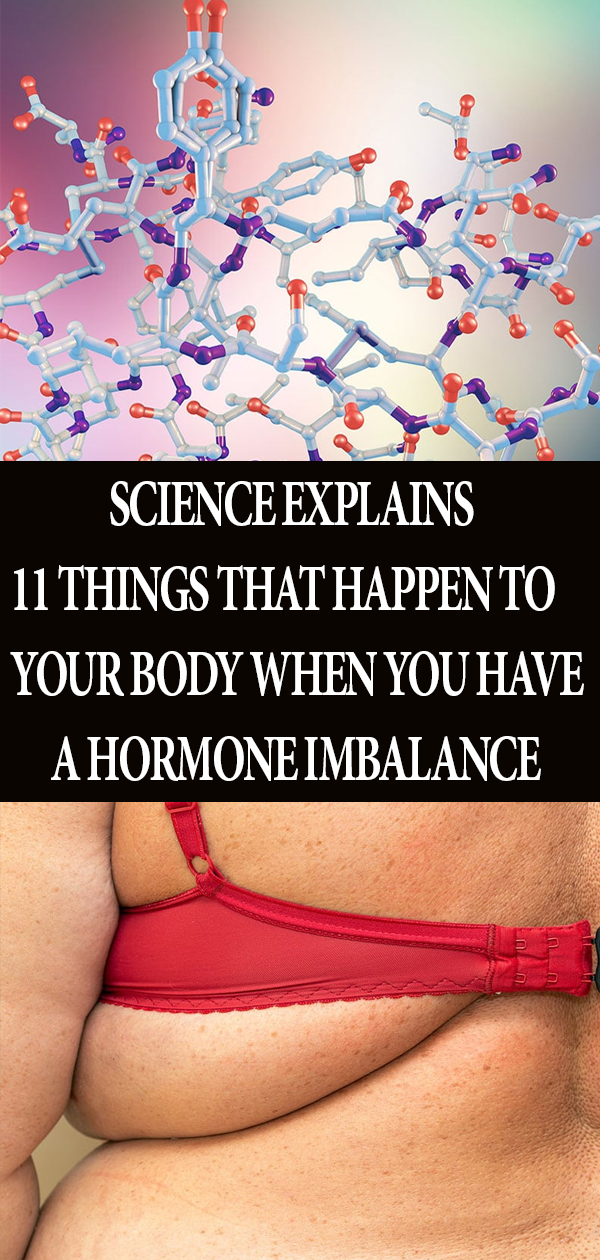Of all the systems that make our bodies amazing machines, the endocrine system is the least talked about. After all, as long as everything works as it should, then it is mostly automatic, requiring no real effort on our part.
Essentially, the endocrine system is the modem for the creation and management of our hormones. Our hormones act like a wi-fi network. They are special chemical messengers in our bodies that travel via the bloodstream to control most of our body’s functions by communicating with our organs, including the brain. Feeling hungry? Able to sleep? Blood sugar is good? Is the immune system strong? Healthy sex life? These are just a few of the things that you can thank your hormones for controlling.
So, what happens when you have a hormone imbalance? To understand that, first we need to understand the diversity of the glands, the hormones released, and what each hormone does for the systems or organs they help monitor. Then, you can see the chain reaction if they go awry.
Hormones are created by various glands throughout our body. You may have heard of many of these glands. Sadly, not enough emphasis is given to them when compared to our brain, heart, lungs, and other major organs. These small but significant powerhouses are:
The Main Boss Glands:
- Pituitary: The brains of the whole operation, or “the Master Gland,” the pituitary gland controls other glands. It is also the gland responsible for triggering growth.
- Hypothalamus: Second in command, this gland controls the release of hormones from other glands. It is also responsible for many other body signals such as hunger, mood, thirst, sleep, and even your sex drive.
The Worker Glands:
- Parathyroid: Regulates the amount of calcium in your body.
- Thymus: This gland helps itself to mature, influences how your immune system adapts, and produces T-cells (a type of White blood cell essential in your line of defense against illness).
- Pancreas: Controls your blood sugar levels by producing insulin.
- Thyroid: Calorie burning and heart rate are controlled through this hormone.
- Adrenal: Produces the hormone which controls your sex drive and regulates the levels of cortisol, a hormone which is released to aid in stress levels.
- Pineal or Thalamus: Produces melatonin from serotonin to aid in sleep.
- Ovaries: the ovaries secrete estrogen, testosterone and progesterone – the female-only sex hormone which aids in pregnancy, puberty, bone strengthening, hair growth, regulating the menstrual cycle, and mood.
- Testes: They produce testosterone in men. Testosterone plays a role in bone density, puberty, muscle mass growth, strength and facial hair.
Endocrine Disrupters
Hormones circulate throughout the body but are designed to only be picked up by the needed target. Just like when you send a text, it is only supposed to go to one person on your contact list, not the entire list. But what if something interferes? These interferences are called endocrine disrupters and can act in a variety of ways.
- They can mimic the correct hormone and then arrive at the destination in the correct one’s place.
- They can block the original hormone from being excreted.
- Endocrine disrupters block it from bonding at the destination.
- They decrease the effect the hormone should have.
- Endocrine disrupters also affect how the target or destination responds to the hormone.
If any of these disruptions occur in a fetus, it can create severe developmental issues. In an adult, it can cause a variety of symptoms as body signals get scrambled and a chain reaction occurs. Some causes of these interrupters are:
- Weight gain
- Diabetes
- Stress
- Tumor
- Injury
- Radiation or chemotherapy
- Chemicals
So, now that you know about the various glands in the body responsible for creating hormones, let’s talk about the symptoms of hormone imbalance. Many of the symptoms most commonly recognized are exclusive to gender as they are due to the dysfunction of male or female sex hormones.
Science Explains 11 Things That Happen To Your Body When You Have A Hormone Imbalance
Women Specific Hormonal Imbalance
For women, dealing with hormone imbalance is a monthly occurrence due to the fact that their three main hormones – estrogen, progesterone, and testosterone – fluctuate as part of the menstrual process. These same hormones also fluctuate during pregnancy and menopause. Women’s hormones are meant to act as a check and balance to each other, but their fluctuations can occur within short periods of time, making them very difficult to maintain a balance. The symptoms related to these hormonal imbalances include, but are not limited, to:
- Fatigue
- Headaches
- Weight gain or loss
- Mood swings
- Thinning hair or increased hair growth on face, neck and body
- Constipation or diarrhea
- Abnormal bleeding – related to mensuration or not
- Difficulty getting pregnant or maintaining pregnancy
Men Specific Hormonal Imbalance
Hormonal imbalances in men aren’t spoken about as much as women since their imbalance occurs as they age. The hormones which naturally affect them are the growth hormone and testosterone. By the age of 40, they have less than half the production of the growth hormones that they had at age 20. The loss of testosterone also effects their adrenal gland, which then impacts their cortisol levels. The symptoms related to their hormonal imbalances are many, but here are a few:
- Fatigue
- Decreased sex drive
- Weight gain
- Depression
- Erectile Dysfunction
- Decreased muscle mass
- Possible thyroid dysfunction (hyperthyroidism or hypothyroidism)
- Adrenal dysfunction (Andropause or Adrenal fatigue)
- The decrease in body hair
- Infertility
- Lower sperm count
Other Hormonal Imbalances
Beyond the gender-specific hormones and related glands, there are still more hormone imbalances which can occur. They create a wide variety of symptoms and dysfunctions depending on which other glands they affect. Here are just a few major ones:
Thyroid Disorder
A thyroid disorder can take the form of either hypothyroidism or hyperthyroidism. In hypothyroidism, your gland is not able to produce enough of the thyroid hormone – creating symptoms such as weight gain, fatigue, feeling cold, hair loss, dizziness, dry skin, and more. Hyperthyroidism occurs due to the thyroid producing too much of the thyroid hormone and can cause weight loss, high energy, increased hunger, increased heart rate, and more.
Diabetes
Diabetes is a disorder in which your body is no longer breaking down the glucose from the food you eat. The hormone insulin is triggered from your pancreas as glucose is detected in your bloodstream. That glucose is then supposed to be transferred to your cells for the purpose of providing energy to your body. Symptoms which may point to diabetes are increased thirst, increased hunger, craving for sweets, increased urination, decreased stamina, and blurred vision.
Addison Disease
Addison Disease is a disorder that occurs when the adrenal glands are not producing enough adrenal hormones. In many cases, the cause is unknown, but the autoimmune system attacks the adrenal cortex. Symptoms are usually related to the balance of potassium and sodium. Symptoms consist of dehydration, darkened skin patches, dizziness upon getting up, fluctuations in sodium levels dependent upon how much water one drinks, low blood sugar, fluctuations in blood pressure, and other complications.
Recognizing Hormonal Imbalance Disorders
These are just a small list of the disorders that an imbalance of our hormones can cause. As shown above, our hormones control the functions of every aspect of our bodies. Therefore, the symptoms are vast. As one gland is affected, the related hormone can cause a chain reaction with other dependent glands and hormones. Due to this interplay, it can be difficult for doctors to identify the original cause. Additionally, the symptoms can be gradual, easily ignored in the beginning, and related to multiple causes – further complicating a diagnosis. While it is essential to pay attention to our bodies, a hormone imbalance does not need to be viewed with dread.
While it can cause many complications in the young during growth stages, one should recognize it is also a natural process that as we age, certain hormones will increase production and others will decrease. Treatments range from taking synthetic or natural forms of the hormones, healthy diet, increased vitamins, exercise, possibly surgery, and supportive medication to treat any additional symptoms.
Upon seeing how many bodily functions our endocrine system – and therefore our hormones – regulate and control, one can’t help but be further amazed by the human body and its design. Just think of all the things you could not enjoy if not for these little messengers! Yet, it is not difficult to see how they can go from awesome to awful when our hormones grow imbalanced and affect our bodies. We are so fortunate in that by being aware, eating healthy and exercising, we can help our bodies stay in balance so our hormones function properly.
Final Thoughts
If you believe you have a hormone imbalance, make sure you get it checked out with a doctor. He or she will help you find the cause of the imbalances and come up with a corrective plan to get your body back on track. Diet, exercise, keeping stress low, and getting enough sleep can often help hormones become balanced again. Of course, there are exceptions to this, which is why having regular check-ups is so important.


